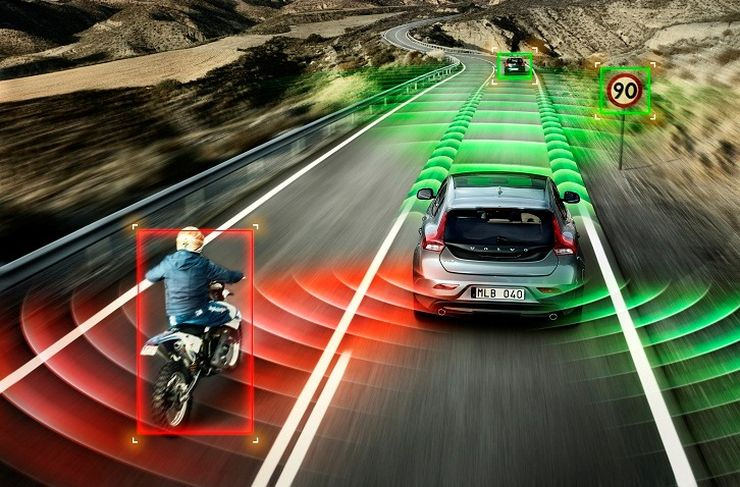By 2030, 95% of U.S. car miles travelled will be in self-driving, electric, shared vehicles. A historic revolution in transportation will end over 100 years of individual ownership of gas-powered vehicles and in all literal sense, devastate the oil industry in the process.
That is according to a ground breaking new research report, “Rethinking Transportation 2020-2030: The Disruption of Transportation and the Collapse of the ICE Vehicle and Oil Industries” by Tony Seba, RethinkX co-founder and instructor at Stanford and James Arbib, RethinkX co-founder, technology investor and philanthropist.
I’d start by quoting some quintessential lines from the above mentioned report,
By 2030, within 10 years of regulatory approval of autonomous vehicles (AVs), 95% of U.S. passenger miles traveled will be served by on-demand autonomous electric vehicles owned by fleets, not individuals, in a new business model we call “transportas-a-service” (TaaS). The TaaS disruption will have enormous implications across the transportation and oil industries, decimating entire portions of their value chains, causing oil demand and prices to plummet, and destroying trillions of dollars in investor value — but also creating trillions of dollars in new business opportunities, consumer surplus and GDP growth.
This is a fundamental shift with its impact, going much beyond the transportation industry. I see it having a major impact on how humans live in the coming century! Let’s have a look at few of the major implications.
Major time saved could translate to a jump in consumer spending
[mks_pullquote align=”left” width=”300″ size=”24″ bg_color=”#dd3333″ txt_color=”#ffffff”]$1 Trillion boost to GDP as productivity rises[/mks_pullquote]With self-driving gaining prominence, people won’t be wasting time juggling through traffic and reaching the desired destination in a rather horrendous state of mind. What good would that do you ask ?Well, gains from the rise in productivity due to autonomous vehicles, are estimated to boost the US GDP by a dinosaurous $1 trillion. What impact would this additional $1 trillion per year in American pockets by 2030, potentially have on the consumer spending? Well, its a question I’ll leave your imagination to ponder.
Free Space in Crowded cities
As fewer cars travel more miles, the number of passenger vehicles on American roads will drop from 247 million to 44 m (82% drop!) decongesting the roads and need for parking spaces everywhere. The issues of junk cars can also be solved through this. This will open up vast tracts of land for other, more productive uses. So imagine all the dedicated multi story buildings for parking that are a necessary evil now being free for more productive use. 82% drop in number of cars in the US in 10 years.
A more notable example of the usage is a startup I was talking to the other day, that does vertical farming using hydroponics. Now relate this to a countries like India and China, wherein section of populace are still fighting out hard to gain access to basic livelihood needs.
Imagine all this extra space being used for urban farming and the impact it would have on fresh food availability in cities in such countries, wherein food still travels thousands of miles to get distributed. With urban farming gaining prominence, this will lead to reduced logistics (which would already have been impacted by self driven trucks), thus impacting the quality of food and the price we pay for it.
Look ma, no car! Scrap anyone?
It will no longer be economically viable to maintain your old car. It is estimated that over 100 million existing vehicles will be abandoned. The US automotive recycling industry employs around 100,000 people and earns around $25 billion a year with over 7,000 vehicle recycling facilities across the country.
Imagine the impact on this industry with so many old cars available as scrap! Automotive recycling industry supplies around 37 percent of all ferrous metal to blast furnaces and smelters across the United States of America. The input price to these furnaces will drastically reduce.
On the flip side though, this could aggravate further the problem of dumping in landfills, a problem which will need a different kind of tackling, and perhaps needs the same even in present times.
Car Companies: adapt or perish!
Demand for new conventional cars is expected to plummet — 70% fewer passenger cars and trucks will be manufactured each year. Major car companies will either die or have to reinvent themselves as TaaS companies. Cars will not be sold to anyone but will be owned by these companies making the cars and then being made available in the common pool for consumers to order as they need through their apps.
Cost of transportation drops drastically! Free anyone?
The cost per mile/km will drop drastically because of key cost factors, including ten times higher vehicle-utilization rates, potential of 1 million miles life by 2030, and far lower maintenance, energy, finance and insurance costs. It will be at par or lower than public transport. The rides could even be free with revenues coming in from other sources like advertising, data monetization, entertainment and product sales.
Imagine you order stuff from Amazon while in the car and your ride is paid for by Amazon!
Could this mean that public transport will become unviable in large cities? Or governments who have to spend billions on providing the urban transportation infrastructure will no longer have to do this and budgets being free to use for alternate services like education or healthcare ?
Auto Insurance Industry: Will it be relevant anymore?
A recently published report co-authored by BCG and Morgan Stanley and prepared using data collected from industry and consumer surveys posits that the $200 billion global auto insurance market is at high risk due to a number of disruptive trends. The move to autonomous cars is the biggest one.
According to a study published by the Virginia Tech Transportation Institute in 2016, self-driving cars on average were involved in fewer accidents compared to vehicles driven by humans. [mks_pullquote align=”left” width=”300″ size=”24″ bg_color=”#dd3333″ txt_color=”#ffffff”]$200Bn Auto-insurance market at risk due to autonomous cars[/mks_pullquote]
With more and more self driving cars being on the roads and less and less human driven cars, this
safety edge that the new scenario has will only improve drastically. This would mean less risk and less insurance premiums. And with car companies doing a bulk deal with insurance companies (or running their own insurance companies like they do for car financing), this will totally change the automotive insurance industry for ever. It will also have a huge impact on saving human lives (~40,000 lives were lost in air accidents in US alone in 2016).
Free from the shackles of the Oil economy!
I personally feel, that the biggest impact will be seen on the oil economy – the global oil demand after peaking to 100 million barrels per day by 2020 will drop to 70 million barrels per day by 2030. This will have a catastrophic effect on the oil industry through price collapse (an equilibrium cost of $25.4 per barrel), disproportionately impacting different companies, countries, oil fields and infrastructure depending on their exposure to high-cost oil. Imagine the impact on the fortunes of countries dependent on oil money and on everything good and bad that gets funded now by oil money. [mks_pullquote align=”right” width=”300″ size=”24″ bg_color=”#dd3333″ txt_color=”#ffffff”]30% drop in Oil demand globally, in 10 years[/mks_pullquote]
In the last century, oil has been the major reason for war. Nations have fought wars to conquer oil fields or prevent rivals from controlling the commodity that is the lifeblood of industrial economies. With oil losing its significance in the global economy and interdependence of countries, this could have a fundamental shift in spending on arms and thousands of human lives lost in these major conflicts.
I believe disruption at this scale was last witnessed during industrial revolution. This is going to fundamentally change the way we live and work – not just in US but worldwide. And all this is going to happen in next 15 years during our own lifetime… Can’t wait to experience it!!
FEATURED IMAGE : Flickr // CC 2.0 License
This article has been written by one of our guest contributors. While our editing team takes utmost care of producing error-free and non-plagiarised guest content, the liabilities for any such actions rests with the guest contributor.





